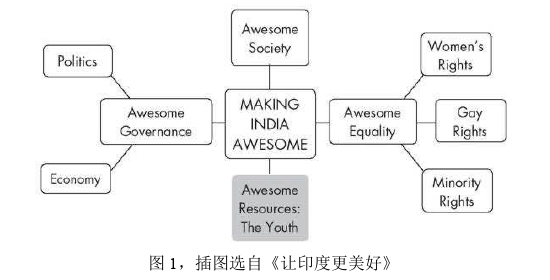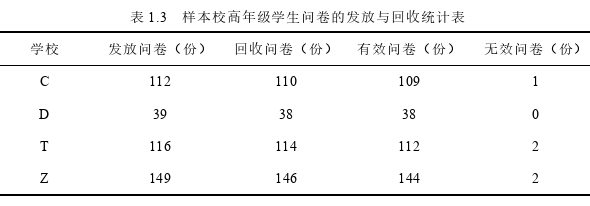本文是一篇英语论文,本文引用了恩德贝勒的普通理论,这标志着南非小说从“壮观”转向“普通”,或从对种族隔离的明确政治抗议转向普通写作。这一理论对后种族隔离时代南非的第一代黑人作家产生了重大影响,其中包括Niq Mhlongo。本论文研究了姆隆戈的《狗咬狗》和《回家的路》是如何回应恩德贝勒的普通理论的,以及他的作品是如何进一步发展民主南非的普通理论的。
Chapter 1 Introduction
1.1 Niq Mhlongo and His Dog Eat Dog and Way Back Home
Niq Mhlongo is one of the representative literary figures of the first generation of black writers in post-apartheid South Africa. He shoulders the important role as writer in “voicing for the blacks and reshaping history”. (Obi-Young, 2018) A well-known Chinese scholar considers him as “one of the most distinguished young writers in the post-apartheid South Africa”. (Jiang, 2017) The New York Times also acclaims him as “one of the most high-spirited and irreverent new voices of South Africa’s post-apartheid literary scene”. (Donadio, 2006) His works have won him an international reputation and many important awards though he is not prolific. His Spanish version of Dog Eat Dog won the Mar de Letras Internacionale Prize in 2006. His Soweto, under the Apricot Tree won The Herman Charles Bosman prize and Nadine Gordimer prize for short stories in 2019.
Mhlongo was born in Midway Chiawelo in Soweto on June 10, 1973, as the eighth of ten children. “His mother is from the northeast Limpopo province. His father, who was a sweeper in a post office, died when he was a teenager. After his father’s death, Mhlongo’s older brothers supported the family. He lived in Soweto as a child but was sent to Limpopo for his primary and secondary education by his parents, who wanted to safeguard him from the rising tensions in Soweto.” (Moreillon & Stiebel, 2015) “When Mhlongo was a child, there was no other ways for him to understand the world except reading. As his elder brother studied medicine at KwaZulu-Natal University, he collected many works written by African writers, including works of Ngugi wa Thiong’o, Chinua Achebe, and Ayi Kwei Armah and other African writers. These books have nourished his mind”. (Jiang, 2017) They have helped Mhlongo deeply realize the unequal relationship between Africa and the West, the erosion of native culture by Western civilization, and the profound sufferings of African people caused by colonial rule. Their emphasis on the establishment of national self-confidence and self-esteem, their criticism of the national leaders’ abuse of power as well as corruption after independence, and their reflections on colonialism and nationalism have exerted great influence on Mhlongo’s writings.
1.2 Literature Review
Introduction to literature review can be divided into three parts. The first part will generalize the research on Niq Mhlongo’s works. The second and third part will respectively introduce relevant domestic research and foreign research on Dog Eat Dog and Way Back Home. To begin with, according to incomplete statistics, there have been about sixty articles on Mhlongo and his fiction, including book reviews, interviews, thesis, and journal articles in the past seventeen years. Apart from the sixty articles, there are some researchers who mention him as “the new and young voice of South Africa” in their papers without detailed discussion. Mhlongo’s writings do not arouse South African scholars’ interest at the beginning of their publications but are recognized by international literary circles. After the publication of his debut novel, he has been acclaimed as “one of the most high-spirited and irreverent new voices of South Africa’s post-apartheid literary scene” by the New York Times. (Donadio, 2006) In recent years, South African scholars have paid increasing attention to his works while most Chinese researchers are still unfamiliar with Niq Mhlongo’s works.
The second part deals with the domestic research on Mhlongo’s Dog Eat Dog and Way Back Home. In 2017, Jiang Hui, a visiting scholar at University of Witwatersrand in South Africa, published an interview article When Freedom Comes Suddenly---Interview with South African Novelist Niq Mhlongo, which mainly reveals Mhlongo’s literary influence, creative motives, audiences of fiction, and so on. It also discusses the similarities and differences between Mhlongo’s debut novel Dog Eat Dog and Wang Meng’s Long Live Youth, pointing out that South African young people lack the ability to manage freedom and the subject consciousness to write national history after they gained hard-won freedom and democracy. (Jiang, 2017)
Chapter 2 Njabulo S. Ndebele’s Ordinary Theory
2.1 The Ordinary Theory: End of Protest Literature
Ndebele (2015:60) defines the ordinary as “the opposite of the spectacular”. “It is sobering rationality; it is the forcing of attention on necessary detail.” (Ndebele, 2015:60) This definition of the ordinary reveals that “the opposite of the spectacular” is a key phrase to understand what the ordinary is. In order to figure out the meaning of the “ordinary”, it is crucial to get to know what the “spectacular” is in the first place. Actually, the “spectacular” is a word chosen by Ndebele to generalize the typical characteristics of South African Black English literature. In his view, “The history of black South African literature has largely been the history of the representation of spectacle” and the form of literary representation is “highly dramatic and highly demonstrative”. (Ndebele, 2015:44) He briefly reviews the history of South African black English literature from the stories of R.R.R. Dhlomo (the beginning of South African Black English fiction in 1928), to the stories in Drum magazine in the early years of fifties and to the Protest Literature in the 1950s and 1960s. Moreover, a detailed analysis of Protest Literature has been given. The first two periods, in his opinion, demonstrate a similar penchant for the spectacular while Protest Literature reveals “the spectacular ugliness of the South African situation in all its forms”. (Ndebele, 2015:48) Based on these, he summarizes the major characteristics of the “spectacular” at full length.
“The spectacular documents; it indicts implicitly; it is demonstrative, preferring exteriority to interiority; it keeps the larger issues of society in our minds, obliterating the details; it provokes identification through recognition and feeling rather than through observation and analytical thought; it calls for emotion rather than conviction; it establishes a vast sense of presence without offering intimate knowledge; it confirms without necessarily offering a challenge. It is the literature of the powerless identifying the key factor responsible for their powerlessness."(Ndebele, 2015:55)
2.2 Two Key Points of the Ordinary Theory
This thesis argues that redefining political relevance and turning to interiority are two key points of the Ordinary Theory. By means of redefining political relevance, Ndebele frees the limited understanding of the relationship between art and politics defined by the “spectacular” Protest Literature to focus on the more extensive and richer political implications in black people’s ordinary life. And through turning to interiority, Ndebele tries to restore the artistic autonomy of fiction from the exterior demonstration of dramatic politicisation to have a better literary representation of black people’s ordinary life. In other words, Ndebele has attempted to “rediscovery the ordinary” from subject matters and literary methods. However, this statement is quite simple, which cannot encompass the profound thoughts of Ndebele’s ideas of the ordinary. Thus, a detailed discussion about these two points under the discourse of South African history and literary development is necessary.
2.2.1 Redefining Political Relevance: From Dramatic Politics to Daily Politics
This part focuses on four questions. What is the original meaning of relevance? Why did Ndebele want to redefine Ndebele? What is Ndebele’s definition of relevance? And how is it related to Mhlongo’s works? As for the first question, the relevance under the dominance of protest politics in the fifties of last century was defined as follow: “The more limited understanding of the relationship between politics and art would define as relevant any subject or act that is perceived to contribute dramatically to the struggle for liberation.” (Ndebele, 2015:84) This definition reveals firstly that the relationship between art and politics should be limited as much as possible.

Chapter 3 Representation of Black People’s Ordinary Life ..................................... 24
3.1 Dingz’s Study in University of the Witwatersrand ......................... 24
3.2 Christianity in Dingz’s Ordinary Life ........................................ 30
Chapter 4 Revelation of Black Characters’ Interior Complexity ............................ 38
4.1 Exploration of Dingz’s Complex Consciousness .............................................. 38
4.2 Exploration of Kimathi’s Inner Struggle ........................................................... 43
Chapter 5 Development of the Ordinary in Rewriting Relations Between Black and White .50
5.1 Ndebele’s Advocacy for Tactical Absence of the White Oppressors ................ 50
5.2 Rewriting Relations Between Black and White in Post-Apartheid Era ............ 52
Chapter 5 Development of the Ordinary in Rewriting Relations Between Black and White
5.1 Ndebele’s Advocacy for Tactical Absence of the White Oppressors
This part aims to explain what the writing strategy of tactical absence of the white oppressors is and to display the reasons for advocating this writing strategy by Ndebele. Based on these, this part attempts to figure out whether the ordinary reflected in Mhlongo’s works is undercut if his works rewrite the relations between black and white. To begin with, this writing strategy was proposed by Ndebele in 1980s in Rediscovery of the Ordinary, advocating “radical displacement of the white oppressor as an active, dominant player in the imagination of the oppressed”. (Ndebele, 2015:88) This advocacy means that literary works should focus on black people instead of paying attention to the oppressors or the oppression being inflicted on African people by the white oppressors.
Take Ndebele’s literary praxis for example to specifically elaborate the meaning of this writing strategy. Ndebele strictly follows this strategy in his collection of short stories Fools and Other Stories. Instead of portraying the white oppressors and the confrontations between black and white, his stories are concerned with the ordinary life in a small township with much focus on the inner growth of small boys in the first four stories and on the subtle relationship between a black student and a black teacher in the last story. In this way, Ndebele displaces the white oppressors in literary imagination to pay attention to black people themselves.

Conclusion
This thesis mainly focuses on Niq Mhlongo’s Dog Eat Dog as well as Way Back Home with the insight of Njabulo S. Ndebele’s Ordinary Theory. This thesis holds that these two novels are mainly concerned with the textures of black people’s daily life and their complicated inner world. What’s more, these two novels deal with the subtle confrontations between black and white in their daily life in post-apartheid South Africa. The purposes of the thesis are to figure out what kind of daily life has been presented, what kind of black people have been characterized and what the relations between black and white are after the peaceful political transition from apartheid to democratic South Africa in Mhlongo’s writings.
To fulfill these aims, this thesis resorts to Ndebele’s Ordinary Theory which marks a shift in South African fiction turning away from the “spectacular” to the “ordinary”, or turning away from the explicit political protest against apartheid to an ordinary writing. This theory has exerted great influence on the first generation of black writers in post-apartheid South Africa, among which Niq Mhlongo is included. This thesis has studied how Mhlongo’s Dog Eat Dog and Way Back Home respond to Ndebele’s Ordinary Theory and how his works further develop the Ordinary Theory in democratic South Africa.
In the first chapter, a brief introduction of Niq Mhlongo, his two novels, Dog Eat Dog as well as Way Back Home, and relevant literature review at home and abroad has been given. Based on the research background, this thesis has pointed out its research purposes and three research questions. In the second chapter, the definition and two key concepts of Ndebele’s Ordinary Theory have been introduced. This chapter has also explored Ordinary Theory’s influence on South African fiction. Chapter Three and Four have discussed at full length how Mhlongo’s Dog Eat Dog and Way Back Home respond to Ndebele’s Ordinary Theory in terms of subject matters and characterization.
reference(omitted)
